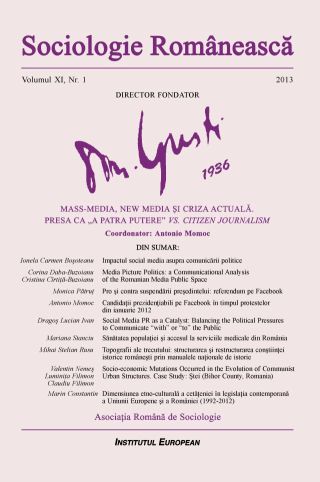Socio-economic Mutations Occurred in the Evolution of Communist Urban Structures. Case Study: Ştei (Bihor County, Romania)
Socio-economic Mutations Occurred in the Evolution of Communist Urban Structures. Case Study: Ştei (Bihor County, Romania)
Author(s): Valentin Nemeş, Claudiu Filimon, Luminiţa FilimonSubject(s): Social Sciences
Published by: Editura Eikon
Keywords: post-communism; socio-economic mutations; urban decline; Ştei
Summary/Abstract: The establishment of the communist regime (1945-1989) triggered the shaping of a new model of development of the country, by hastening the transformation and construction of a modern and competitive state, based on two major pillars represented by heavy industry and cities. The implementation in the territory of these policies led to the emergence of “socialist urban structures”, often with monofunctional profile and artificially sustained by massive investment at the expense of other traditional urban centers. The fall of the communist regime and the rigors of adapting to market economy have triggered other mutations in the Romanian socio-economic system at all scale levels. The present study highlights the successive shocks occurred in the natural evolution of Ştei (from village to town) in this socio-economic context. In order to highlight the mutations occurred in the studied area there were used a number of demographic and economic markers. A typical exponent of the forced industrialization policies, conditioned by the proximity to uranium resources, it became Dr. Petru Groza town “overnight”, with over 5.000 inhabitants. After the fall of communism followed the progressive decline of the town occurred due to the difficulties to adapt the heavy industry to the market economy, simultaneously with the diminishing of the uranium resources. The socio-economic situation of the last decades illustrates the identity crisis facing the town after the loss of its economic identity. The revitalization of the town of Ştei depends directly on the development policies and the urban regeneration process, based on its real potential.
Journal: Sociologie Românească
- Issue Year: 11/2013
- Issue No: 01
- Page Range: 103-115
- Page Count: 13
- Language: English

